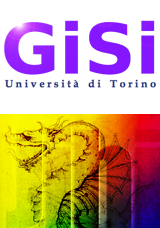JIHI 6(2017) n. 11
Editorial: Next issues
Manuela Albertone - Enrico Pasini
 As promised, the next issue of the Journal of Interdisciplinary History of Ideas will host the papers collected with the open call on Philosophy and Geography. The collection, that will be edited by Simone Mammola and Ernesto Sferrazza Papa, is currently in peer-review. And, as regards peer-review, we would like to share with you our intention to experiment with open peer-reviewing for some special collaboration project.
As promised, the next issue of the Journal of Interdisciplinary History of Ideas will host the papers collected with the open call on Philosophy and Geography. The collection, that will be edited by Simone Mammola and Ernesto Sferrazza Papa, is currently in peer-review. And, as regards peer-review, we would like to share with you our intention to experiment with open peer-reviewing for some special collaboration project.
The following issue will be essentially devoted to the outcomes of an initiative we took to celebrate 2017 as the year that marks the 500th anniversary since Martin Luther nailed his 95 Theses in Wittenberg. In collaboration with the University of Neuchâtel and the Department of Historical Studies of the University of Turin, Pietro Adamo and Manuela Albertone of the Turin Interdisciplinary Group for the History of Ideas (GISI, publisher of this Journal), together with Olivier Christin, organised a day-long workshop, which took place in Turin on May 12.
A group of experienced scholars (Pietro Adamo, Eleonora Belligni, Paolo Cozzo, University of Turin; Olivier Christin, Elena Guillemard, University of Neuchâtel; Debora Spini, Syracuse University in Florence; Laurent Tissot, University of Neuchâtel; Valentine Zuber, EPHE, Paris) were invited to converse on the political, economic and cultural heritage of the Reformation in present-day Europe from the point of view of intellectual history. Our European context faces crucial moments as far as religious pluralism, freedom of conscience, political participation, relationship between economics and ethics are concerned. The Reformation, as a starting point of modern European culture and a core element of its historical heritage, was approached from an interdisciplinary vantage point. The participants sought to provide original multidisciplinary insights into the revitalization of this legacy: Protestantism and democracy, Protestantism and the human rights, Protestantism and capitalism, Protestantism and environment, Protestantism and feminism, Protestantism and anarchism, were among the themes that emerged from this common work. A special issue on Luther’s modernity will be published in June 2018 with selected papers from the workshop.
 As promised, the next issue of the Journal of Interdisciplinary History of Ideas will host the papers collected with the open call on Philosophy and Geography. The collection, that will be edited by Simone Mammola and Ernesto Sferrazza Papa, is currently in peer-review. And, as regards peer-review, we would like to share with you our intention to experiment with open peer-reviewing for some special collaboration project.
As promised, the next issue of the Journal of Interdisciplinary History of Ideas will host the papers collected with the open call on Philosophy and Geography. The collection, that will be edited by Simone Mammola and Ernesto Sferrazza Papa, is currently in peer-review. And, as regards peer-review, we would like to share with you our intention to experiment with open peer-reviewing for some special collaboration project.